Jun
27
2011

How can we fix modern worship? Nearly all debate on this subject overlooks what the Bible has to say.
In From Silence to Song, Peter Leithart justifies the practice of finding patterns for our worship in the Levitical rites in the fact that King David did precisely this.
“…sacrificial worship did not cease with the coming of the New Covenant, but was transformed into a “spiritual sacrifice” and “sacrifice of praise.” We now do different things than ancient Israelites did, but those actions have the same meaning as the actions in the Levitical ceremonies.
Continue reading
2 comments | tags: Chronicles, Communion, David, Leviticus, Liturgy, Peter Leithart, Typology, Worship | posted in Biblical Theology, Quotes
Jun
2
2011
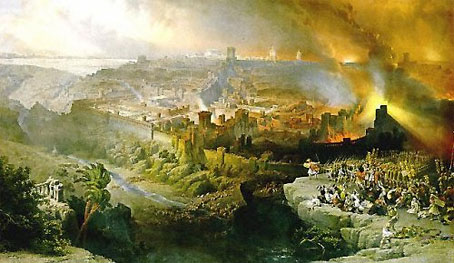
Doug Wilson writes:
“The Levitical administration brought strong curses for disobedience (Heb. 2:2-3); the New Covenant administration brings much greater curses (Heb. 10:29; Heb. 12:25). Christians commonly assume that the really terrifying curses for disobedience were given in the Old Testament, and that under the New Testament all is grace. But this is precisely the opposite of the New Testament’s teaching on the subject” (To a Thousand Generations, pp. 28-29).
This is certainly a side of the New Covenant that Christians are never taught. The first time I ever heard of it was in David Chilton’s Revelation commentary The Days of Vengeance in 1989. But along with baptism (just had to throw that in), a rediscovery of the Old Covenant hammer makes everything in the New Covenant look like a nail. The Revelation is, after all, a book about the end of the Old Covenant.
Continue reading
Comments Off | tags: Baptism, Covenant curse, Covenant Theology, David Chilton, Deuteronomy, Doug Wilson, Hebrews, Josephus, Leviticus, Revelation 20 | posted in Against Hyperpreterism, Biblical Theology, The Last Days
Apr
2
2011
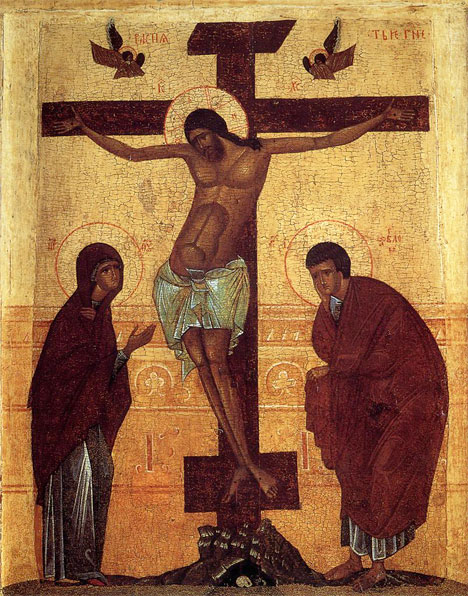
“The priest shall take some of the blood of the trespass offering, and the priest shall put it on the tip of the right ear of him who is to be cleansed, on the thumb of his right hand, and on the big toe of his right foot.” Leviticus 14:14
This is one of those weird things we Christians don’t like to talk about. But James Jordan loves to talk about the weird things. He says somewhere that these three bloody points on the body plus circumcision make a cross. Well, there are certainly four points, but does it look like a cross to you?
Continue reading
Comments Off | tags: Genesis, Holy Spirit, James Jordan, Lampstand, Leviticus, Tabernacle | posted in Biblical Theology
Jan
17
2011

or The Rapture is History
“And after my skin is destroyed, this I know, that in my flesh I shall see God.” Job 19:26
Full preterism leads logically to gnosticism. If death is already defeated, salvation has come to the world, and all is now perfect, then of necessity all three — death, salvation and perfection — have to be redefined. They are only Covenantal, “spiritual.” You can probably understand why doctrines like these don’t originate from the persecuted church. Some hope.
However, that said, I agree with 97.3963798475% of full preterism. Their take on the parousia texts is logical and contextual. Jesus actually did come back soon, as He promised, to rescue the persecuted firstfruits church. The textual ping-pong of the well-meaning partial preterists (who can’t agree between themselves on which parousia texts refer to the end of history) is a confusion of which our God could not possibly be the author. So what’s the answer?
Continue reading
28 comments | tags: Against Hyperpreterism, Covenant Theology, Daniel, David, Deuteronomy, Dispensationalism, Ezekiel, Ezra, Job, Leviticus, Paul, Resurrection, Saul, Tabernacle | posted in Against Hyperpreterism, Biblical Theology, The Last Days, The Restoration Era
Dec
28
2010

“Who may ascend into the hill of the LORD?
Or who may stand in His holy place?
He who has clean hands and a pure heart…” (Psalm 24:3-4)
In Leviticus, an Israelite is to lay his hand on the sacrifice that covers his sin and allows him to draw near to God. It was the red hand of death and the whiteness of a pure sacrifice willing to take the “stroke” (plague).
“And Abraham stretched out his hand and took the knife to slay his son.”
Genesis 22:10
But the Lord Himself covered Moses with His hand as the consuming fire of His glory passed-over the mountain. It was the hand of life and the whiteness of imparted glory. As far as was possible, Moses saw the Lord as He was, because he was like Him.
Continue reading
Comments Off | tags: Abraham, Genesis, Leviticus, Moses, Passover, Revelation, Typology | posted in Biblical Theology, Totus Christus
Dec
14
2010
or God is a Foodie
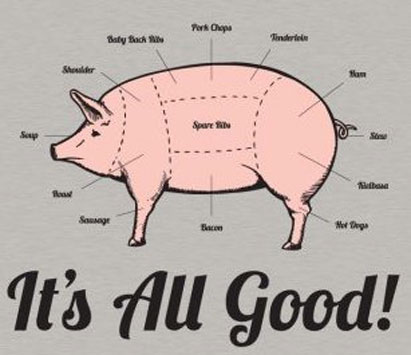
The Mosaic dietary laws were temporary. Just as a Nazirite made a temporary vow for the purpose of sanctification for holy war, so Israel’s purpose as a nation of holy warriors included certain abstinences prescribed by God. Once the war was over, the prohibitions were removed. “Bridal food” (the Feast of Tabernacles) was back on the menu in the first century.
The Nazirite vow was a symbolic form of death and resurrection, of the bridegroom going into the grave (short hair), slaying the serpents, and emerging from the chamber with His bride (long hair), whom He then presented to the Father. [1] The prohibition on the Tree of Knowledge was a temporary one. It began Adam’s holy war, but he broke the vow, failed to rescue the bride and was expelled from the Lord’s table. [2]
Continue reading
11 comments | tags: Communion, Fasting, Food laws, Genesis, Jacob, James Jordan, Leviticus, Nazirite, Robert Farrar Capon, Typology | posted in Biblical Theology, Christian Life, Quotes
Dec
4
2010

One of the keys to getting a grip on the Bible is visualising movement, particularly the “There and Back Again” of chiasms. Ralph Smith posted a link to this fascinating article on the structure of Leviticus:
Continue reading
6 comments | tags: Leviticus, Literary Structure | posted in Biblical Theology
Dec
1
2010
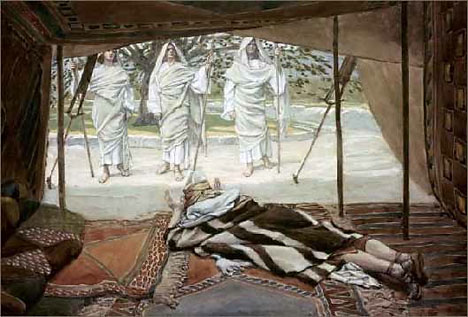
“…of the angels He says:
‘Who makes His angels spirits
and His ministers a flame of fire.’”
God is the source of all things, and He identifies Himself as such in His speeches. Every speech is Covenantal, and every preamble within His speeches is a statement of transcendence. “I am the Lord your God.”
After the initial call comes delegation, Covenantal Hierarchy. A man, a Moses, an Abraham, receives the Word with meekness.
We know that angels are God’s messengers, the sent ones. They administered the Old Covenant as our tutors, Satan becoming the first false teacher, the first corrupt ambassador, or, if you will, the first publican.
[This post has been refined and included in Sweet Counsel: Essays to Brighten the Eyes.]
Continue reading
5 comments | tags: Abraham, Angels, Covenant Theology, Creation Week, Daniel, Genesis, Judges, Leviticus, Nazirite, Nebuchadnezzar, Resurrection, Revelation, Samson, Sodom | posted in Bible Matrix, Biblical Theology, The Last Days
Nov
12
2010
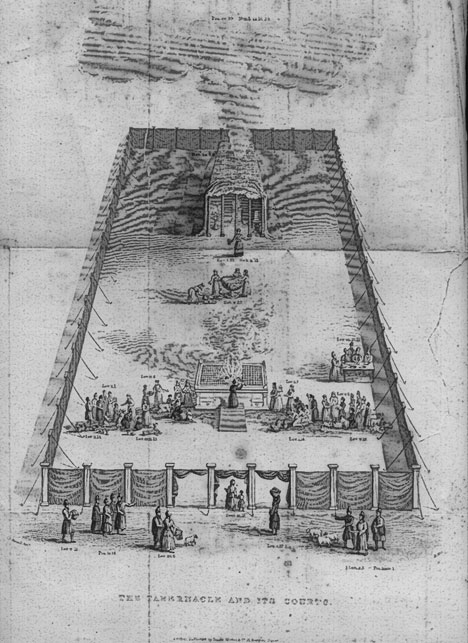
Joshua Marchlewski has outlined the chiasm in Leviticus 24:13-23 (reposted here with his permission): Continue reading
1 comment | tags: Leviticus, Literary Structure, Moses | posted in Bible Matrix, Biblical Theology, Quotes
Oct
14
2010
The Killing Field

“…that on you may come all the righteous blood shed on the Land, from the blood of righteous Abel to the blood of Zechariah, son of Berechiah, whom you murdered between the temple and the altar.” Matthew 23:35
“from the blood of Abel to the blood of Zechariah who perished between the altar and the temple. Yes, I say to you, it shall be required of this generation.” Luke 11:51
The Hebrew word for “land” is feminine. [1] The fruitful Bride is pictured in the fruitful field. Both are to be cultivated and cared for under God by Covenant.
When the priesthood was faithful, God promised to make the people, animals and Land fruitful: the Covenant “to,” the input of the Spirit as Head, as Covenant Word made flesh. Deuteronomy 28 gives a long list of ways in which God would make her abundant. Continue reading
1 comment | tags: Abel, Atonement, Cain, Covenant curse, Covenant Theology, Culture, Deuteronomy, Genesis, James Jordan, Judges, Leviticus, Noah, Peter Leithart, Ruth | posted in Biblical Theology, Quotes


































